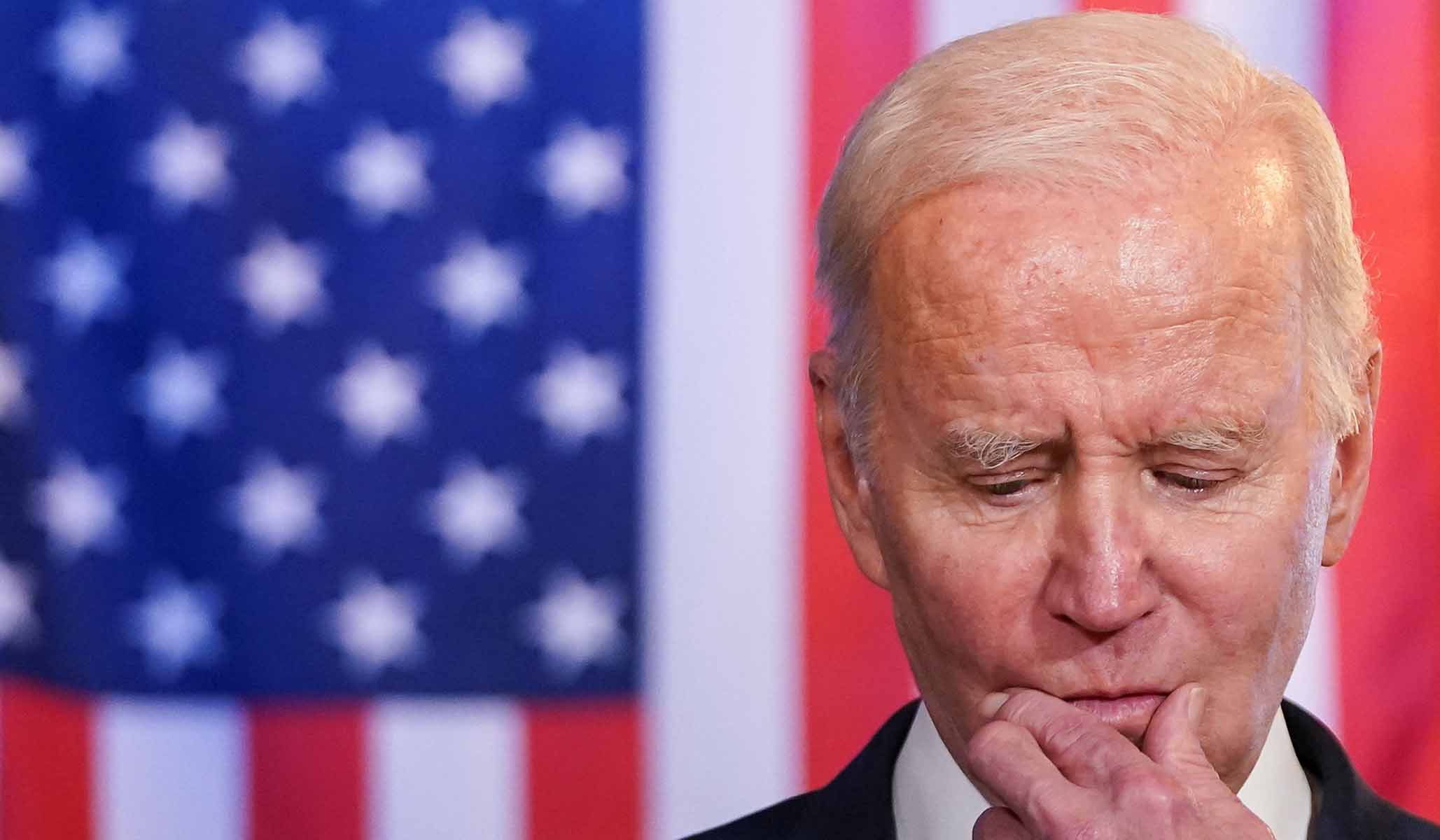


NRPLUS MEMBER ARTICLE T he news around Washington is that the key staffers from both sides have been making significant progress toward a debt-limit endgame, with the Biden team quietly moving away from its position that the debt-limit bill must be “clean” — that is, must contain nothing but the increase itself. As our leaders near the finish line and attempt to navigate across it, it is useful to review the decisive economic and political factors that make it almost certain that a deal will be worked out.
To be sure, uncertainty over the debt limit has significantly roiled markets, with the odds of U.S. default rising to uncomfortable heights. The last time the struggle seemed so dire, the U.S. received a debt downgrade, a fact that could well come into play again should the debt limit showdown get closer and closer to ground zero. One could argue, as many have, that this makes Kevin McCarthy look irresponsible for playing chicken. But if reports of President Biden caving are correct, then McCarthy’s gamesmanship seems to have been effective. The question is, why?
On the economic substance, it seems clear that the Biden administration has begun to realize that all the spending and debt issuance it has been engaging in has put the U.S. in a very treacherous spot regarding its bond rating, even if the debt limit is increased. If rating agencies see the debt-limit struggle as an opportunity for the country to start to move toward a more balanced fiscal situation, what will they think if the Biden administration fails to take advantage of it?
Here are some tough facts to chew on: The U.S. currently has an AA+ rating according to S&P Global. It also has government debt that was — using 2021 as the comparison year because of data availability — a whopping 1.15 times its annual GDP. This debt to GDP is slightly below Portugal’s, a country with an S&P Global rating of BBB+. Indeed, the American bond rating sticks out like a sore thumb. Of countries with AA+ ratings in 2021, the next three countries with the highest ratios of debt to GDP were (with their actual ratios in parentheses), Austria (.63), Finland (.55), and New Zealand (.51). The U.S. has almost double the debt of its closest peers in the ratings game.
Against this backdrop, there is a genuine risk that a “clean” debt-limit increase would set off a downgrade. Common sense would seem to require the Biden administration to be averse to running that risk.
Political factors are also shaping the debt-limit debate. Sure, President Biden will take some short-term heat for compromising with House Republicans. Republicans themselves will probably assert that he “caved” because he is a feeble old man. But, with a presidential election looming, this move might serve Biden’s broader ambitions for a second term. Americans are clearly desperate for a president who can work with those across the aisle, and Biden came into office promising to bring us together. So far, though, he has spent his presidency doing the opposite. If he wants to maximize his chances of being reelected, some grace and compromise are certainly in order.
The wild card on the political side, of course, is former president Donald Trump. On the one hand, he has praised Speaker McCarthy for holding firm in these negotiations. On the other, it is almost certain that a compromise deal will not be — in the eyes of the author of The Art of the Deal — as good as it could have been if President Trump had negotiated it. In one sense, this possibility all but ensures that President Biden blinks. The odds of President Trump being unhappy with the deal are high, and overt criticism of Speaker McCarthy is certainly a possibility. Were that to happen, Biden could have his cake and eat it too.
Together, these economic and political factors mean that the most likely outcome is that congressional Republicans unite in declaring victory when the deal is reached. Though the White House might suffer a bad news cycle, that should be an acceptable trade for Biden. The economic benefits of a more sensible spending path are high right now, and given that voters are hungry for bipartisanship, the political costs of looking weak are low.
